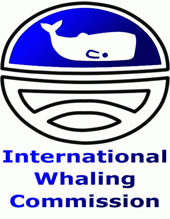International Convention for the Regulation of Whaling (Washington, 1946)

This Convention was established in 1946, making it one of the first pieces of international environmental legislation. The International Convention for the Regulation of Whaling is the legal framework of the International Whaling Commission (IWC), an Inter-governmental Organisation whose purpose is the conservation of whales and the management of whaling.
All member countries of the IWC are signatories to this Convention. The IWC has a current membership of 88 Governments from countries all over the world.
The preamble to the Convention states that its purpose is to provide for the proper conservation of whale stocks and thus make possible the orderly development of the whaling industry.
An integral part of the Convention is its legally binding 'Schedule.' The Schedule sets out specific measures that the IWC has collectively decided are necessary in order to regulate whaling and conserve whale stocks.
These measures include catch limits (which may be zero as it the case for commercial whaling) by species and area, designating specified areas as whale sanctuaries, protection of calves and females accompanied by calves, and restrictions on hunting methods. Unlike the Convention, the Schedule can be amended and updated when the Commission meets (a change requires at least three quarters majority agreement). There are a number of reasons why changes to the Schedule may be necessary. These include new information from the Scientific Committee, and variations in the requirements of aboriginal subsistence whalers.
The Commission also co-ordinates and, in several cases, funds conservation work on many species of cetacean. In addition to research, this includes building an international entanglement response capacity, working to prevent ship strikes, and establishment of Conservation Management Plans for key species and populations. The Commission has also adopted a Strategic Plan for Whalewatching to facilitate the further development of this activity in a way which is responsible and consistent with international best practice.
The Commission undertakes extensive study and research on cetacean populations, develops and maintains scientific databases, and publishes its own peer reviewed scientific journal, the Journal of Cetacean Research and Management.
This presentation was taken from the IWC Website
You can find more information and the Schedule on: www.iwc.int
Log in with your EU Login account to post or comment on the platform.